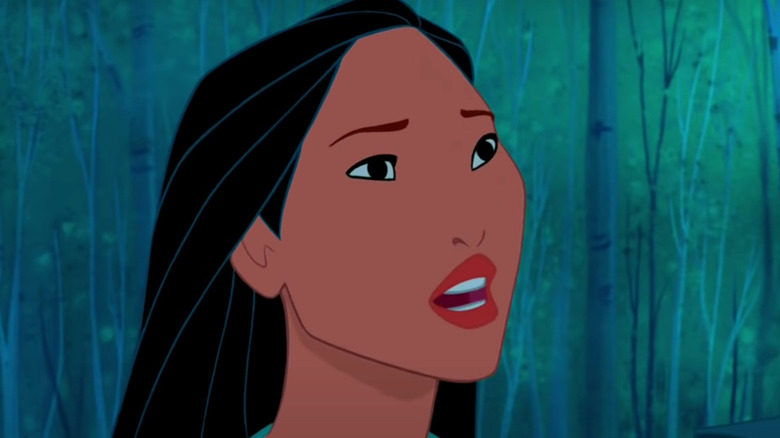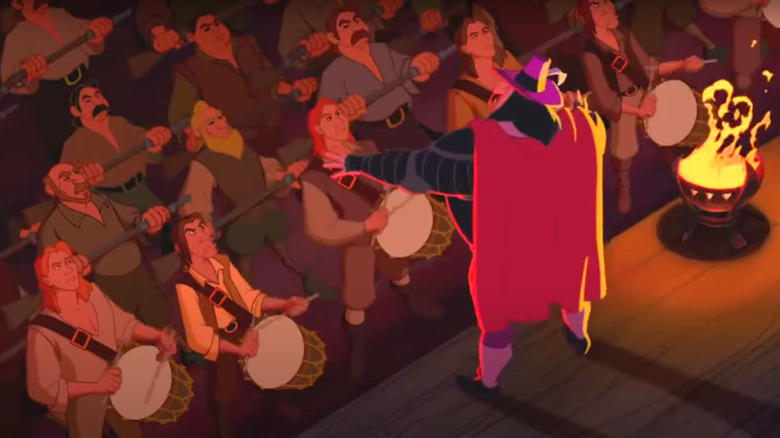The Pocahontas Controversy Disney Probably Doesn't Want You To Remember
Though many of us were raised on Disney's animated canon of films, few children realize that real-life events can sometimes inspire these stories. "Pocahontas" is no exception and, as such, has become an increasingly murky addition to Disney's catalog of classics.
The film's storyline follows the dawn of the colonization of North America by English settlers in the 1600s. While the settlers invade the aboriginal peoples' lands in search of gold and other valuables, John Smith (Mel Gibson) meets an Indigenous woman named Pocahontas (Irene Bedard), and the two immediately become smitten with one another despite their different backgrounds. However, their historical counterparts boast a far less happy tale.
Though it is meant to embody a classic "Romeo and Juliet" style setup that should work well in a storytelling sense, it is marred by its connection to history. The complications behind the real-life facts of colonization have led to the film aging increasingly poorly.
Pocahontas whitewashes the ugly history of colonialism
As if the presence of Mel Gibson, whose racial tirades and other controversies have steadily chipped away at his reputation, wasn't enough of a red flag in this already complex story, "Pocahontas" also has come under fire for whitewashing the sad history behind the destruction of the Indigenous way of life by European settlers (per Facing History).
Furthermore, the character who goes by Pocahontas in the movie was called Matoaka or Amonute in real life, as stated by The Smithsonian. The Algonquian nickname of Pocahontas was used to disguise her identity from the English, lest they seek her out to harm or take her prisoner (via Time).
Though her father, Powhatan, tried desperately to keep the English from taking Pocahontas, Captain Samuel Argall eventually abducted her when she was 14. She was married off at 17 to John Rolfe. Later, she was taken to England to be shown off but grew ill and died during her travels at age 20.
Many Indigenous people have firmly stated their disapproval of "Pocahontas." On a Quora thread concerning the subject, Ojibwe tribal citizen Rebekah Ross weighed in on the movie, noting that this "highly fictionalized version of [Pocahontas'] story is a way for white people to make themselves feel better about the horrible things they've done/continue to do to natives."
This is just one sad story from the time of colonialism. According to Insider, it is speculated that over 90% of North America's Indigenous population died due to the European encroachment. While Disney tried to show the time in a more wholesome light, the facts say otherwise, and for that reason, critics still speak vehemently against Disney's "Pocahontas" to this day (per The Atlantic).

